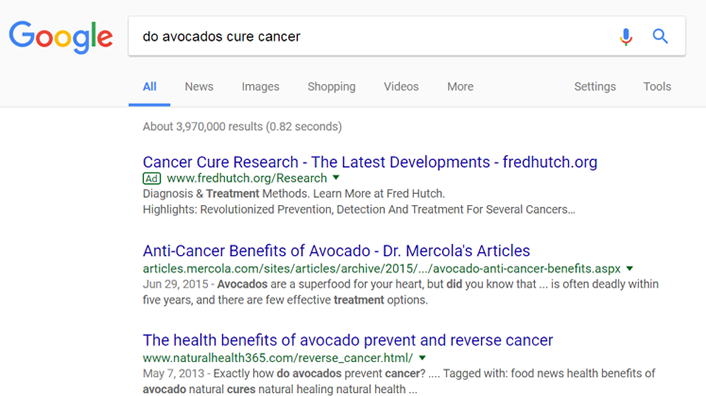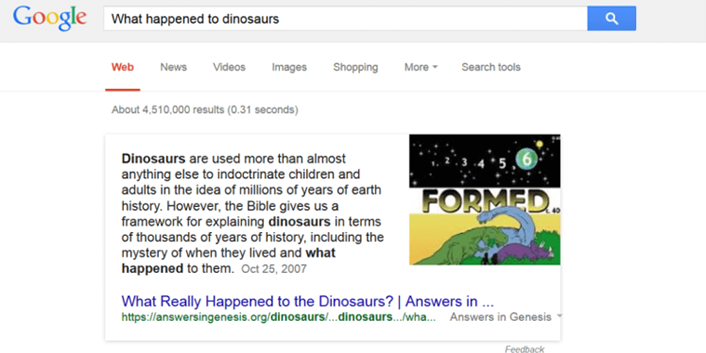![New Horizons [The Technologies Ahead]](https://er.educause.edu/-/media/images/articles/standards/newhorizons2010.jpg)
When I worked at Keene State College, one of the student life groups was heavily into environmentalism: many extracurricular and student learning activities were structured around making the local environment better. For example, the group held a clean-up day each year, when the students, faculty, and staff would pick a target — a local river or park — and remove garbage from the area. They would start by picking up small pieces of trash but eventually end up pulling a defunct television set or a grocery cart out of a stream somewhere.
Participating in the event was enjoyable because (a) you could see how much the work was needed, and (b) you could see the impact you had after you were done. Some things feel good; some things do good. This was both. Lately, as I've been looking at our information environment, I've started to wonder if we can utilize student engagement in a similar way.
Let's walk through this step-by-step.
Our information environment is dangerously polluted. What do I mean by this? Consider a simple Google search such as "Do avocados cure cancer?" Figure 1 is a screenshot of the top results.

I love avocados. I do. And they have health benefits. But these top results hype small, inconclusive studies as part of a strategy to sell supplements. In the process, they possibly give patients the false hope that they can treat cancer without medication or fend off dangerous diseases without vaccines. These web pages belong in the search results somewhere. But having them at the top of the search results is like having a broken television set sitting in a public reservoir.
This isn't an isolated case. Until recently, hitting the "I'm Feeling Lucky" button on Google when asking the question "Did the Holocaust happen?" would lead to Stormfront, a white supremacist site highlighting a page explaining why the Holocaust was a myth. Using the "I'm Feeling Lucky" button when searching on "What happened to dinosaurs?" produced a creationist site in Google Snippets (see figure 2).

In response to a search for "presidents in the Ku Klux Klan," the Google Snippet reports (erroneously) that U.S. Presidents William McKinley, Woodrow Wilson, Warren G. Harding, and Harry S. Truman were all members of the KKK.
These issues are not harmless. People forgo treatments that could save them or make them less sick. People fear threats that are minor (e.g., Islamic terrorism in Topeka, killings by clowns, Ebola in the United States) while not being aware of real threats (e.g., climate change, declining productivity gains, painkiller addiction). Tragedies are the result: the path to radicalization for Dylann Roof, the white supremacist who killed nine people at the Emanuel African Methodist Episcopal Church in Charleston, South Carolina, in 2015 began with a set of search results for a query on "black on white crime."1
Institutions of higher education are partially to blame. It may be tempting to lay all the blame at the feet of Google, herbal remedy sites, or white supremacist newsgroups, but the truth is that higher education is at least partially to blame for this state of affairs. Sites like the ones above produce these pages because there is a public demand for explanations and guidance. Although some of that desire reflects a need to see one's views vindicated, many people who arrive at these pages do so as a result of earnest questions. And both sets of people are affected by what they see on Facebook, Google, or Wikipedia pages.
Meanwhile, those of us in higher education are answering much more important questions than "Do avocados cure cancer?" or "Were any U.S. presidents in the Ku Klux Klan?" We're too busy to improve the Wikipedia page on a subject or to post an informative page on a silly, poorly formed question. But in walking away from this demand, we cede the field to corporations, hacks, and charlatans. How can we complain about our "post-fact moment" if we are unwilling to supply the public with facts in the places where the public is looking, be that Facebook, Wikipedia, or Google?
Now is the time for an info-environmentalism curriculum. It's true that information pollution has been a longstanding problem in mass media. But unlike the nightly news, the web is still a collectively maintained and produced environment. We can clean it up. We can pull those televisions and shopping carts and plastic bags out of our shared information streams and Google results.
I call the pedagogy of teaching students how to improve our online information environments info-environmentalism. Like environmentalism, info-environmentalism requires a curriculum that can approach the challenge from multiple angles, providing students with understandings of various issues:
- How the economic incentives of ad-tech and e-commerce contribute to information pollution
- What social media companies can do to address these issues
- How marginalized groups often endure abuse when trying to contribute to information spaces
- How polarization, bots, corporate money, and state-sponsored action are impacting information quality
- How individuals can minimize their own "misinformation footprint" by being more careful about what they post and using basic web research techniques2
One of the most powerful ways to teach this is through action. And action in this space is about getting students to improve the information environment by posting better-quality information to the web. This can be achieved in many ways: editing Wikipedia; answering questions on Quora or StackExchange; creating explanatory YouTube videos; or posting pages on blogs or wikis that provide helpful guidance on these issues.
At Washington State University Vancouver, we've begun info-environmentalism projects with classes on climate change, human development, neuroscience, library research, health policy, and anthropology. What we've found so far is that providing decent information on niche subjects is a surprisingly easy way to top the Google search results. Students have been able to reach the top three Google search results on many questions with barely any effort put into increasing rank. The Internet is flooded with people expressing their opinion on this thing or that, but there is still a dearth of objectively written, well-sourced material on the web, even in 2017. By shifting students' focus from arguing points to explaining things to others on the web, we can show our students that they can have an impact they never dreamed was possible.
Empower students to make a difference. This work is not new. I started my first info-environmentalism experiment, the Persona Project, twenty years ago, and I've pursued many others in the years since. Dozens of other projects, such as Jon Beasley-Murray's Murder, Madness and Mayhem and Jeff McClurken's digital history efforts, have inspired me since. The Wiki Education organization continues to do excellent work. Thousands of people are engaged in this field.
But I think the work of info-environmentalism is newly important and newly relevant. As the information environment has degraded over the past few years, many professors have become deeply alarmed. They, and their students, want to make things better. Those of us who are administrators, technologists, and instructional designers need to reorient our work and show them how to do so. Because if we don't yank that metaphorical broken television set out of the local stream, who will?
Notes
- Rebecca Hersher, "What Happened When Dylann Roof Asked Google For Information About Race?" The Two-Way, January 10, 2017.
- Michael Arthur Caulfield, Web Literacy for Student Fact-Checkers (2017).
Michael Caulfield is Director of Blended and Networked Learning at Washington State University Vancouver. He is the 2017 editor of the New Horizons column for EDUCAUSE Review.
© 2017 Michael Caulfield. The text of this article is licensed under Creative Commons BY 4.0.
EDUCAUSE Review 52, no. 6 (November/December 2017)
